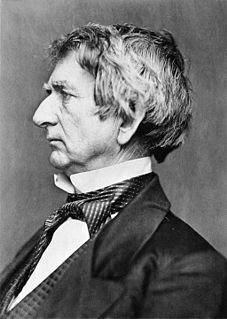A Quote by James Madison
Conscience is the most sacred of all property; other property depending in part on positive law, the exercise of that, being a natural and unalienable right.
Related Quotes
Conscience is the most sacred of all property; other property depending in part on positive law, the exercise of that being a natural and unalienable right. To guard a man's house as his castle, to pay public and enforce private debts with the most exact faith, can give no title to invade a man's conscience, which is more sacred than his castle, or to withhold from it that debt of protection for which the public faith is pledged by the very nature and original conditions of the social pact.
It is evident that the right of acquiring and possessing property, and having it protected, is one of the natural, inherent, and unalienable rights of man. Men have a sense of property: Property is necessary to their subsistence, and correspondent to their natural wants and desires; its security was one of the objects, that induced them to unite in society. No man would become a member of a community, in which he could not enjoy the fruits of his honest labour and industry.
It is a moot question whether the origin of any kind of property is derived from nature at all. It is agreed by those who have seriously considered the subject that no individual has, of natural right, a separate property in an acre of land, for instance. By a universal law, indeed, whatever, whether fixed or movable, belongs to all men equally and in common is the property for the moment of him who occupies it; but when he relinquishes the occupation, the property goes with it. Stable ownership is the gift of social law, and is given late in the progress of society.
It must be assumed and established as a principle, that the right of private property must be regarded as sacred. Wherefore, the law ought to favor this right and, so far as it can, see that the largest possible number among the masses of the population prefer to own property.... But if the productive activity of the multitude can be stimulated by the hope of acquiring some property... , it will gradually come to pass that, with the difference between extreme wealth and extreme penury removed, one class will become the neighbor to the other.
We hold that the ownership of private property is the right and privilege of every American citizen and is one of the foundation stones upon which this nation and its free enterprise system has been built and has prospered. We feel that private property rights and human rights are inseparable and indivisible. Only in those nations that guarantee the right of ownership of private property as basic and sacred under their law is there any recognition of human rights.
One ideological claim is that private property is theft, that the natural product of the existence of property is evil, and that private ownership therefore should not exist... What those who feel this way don't realize is that property is a notion that has to do with control - that property is a system for the disposal of power. The absence of property almost always means the concentration of power in the state.
Legislators cannot invent too many devices for subdividing property... Another means of silently lessening the inequality of property is to exempt all from taxation below a certain point, and to tax the higher portions of property in geometrical progression as they rise. Whenever there is in any country, uncultivated lands and unemployed poor, it is clear that the laws of property have been so far extended as to violate natural right.
It is not the right of property which is protected, but the right to property. Property, per se, has no rights; but the individual - the man - has three great rights, equally sacred from arbitrary interference: the right to his life, the right to his liberty, the right to his property The three rights are so bound together as to be essentially one right. To give a man his life but to deny him his liberty, is to take from him all that makes his life worth living. To give him his liberty but take from him the property which is the fruit and badge of his liberty is to still leave him a slave.
For everybody has a natural right not only to defend his own person and property against aggressors, but also to go to the assistance and defence of everybody else, whose person or property is invaded. The natural right of each individual to defend his own person and property against an aggressor, and to go to the assistance and defence of every one else whose person or property is invaded, is a right without which men could not exist on earth.
If you dropped me off a space platform onto the ground where a line was drawn, I would fall to the left side of it. I believe the difference between right and left is that the right, for the most part, the bulk of their philosophy is interested in property, and the rights of people to own property and gain and acquire and keep property. And I think on the left - though they blend and mix - on the left primarily you will find people who are more concerned about humans, and the human condition, and what can be done.





























